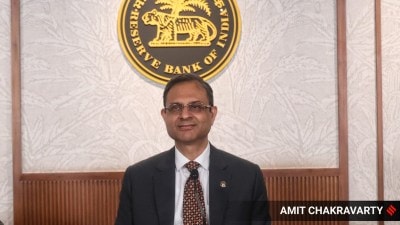Stay updated with the latest - Click here to follow us on Instagram
Amid crisis, Bengaluru bans use of potable water for construction, washing vehicles, gardening; Rs 5,000 fine for violators
The Bengaluru Water Supply and Sewerage Board has directed the public to alert its helpline 1916 if anyone is found violating the ban.
 Kannada actress Tara with residents of Bharathi Nagar area stages a protest over water crisis in Bengaluru on Thursday. (Photo: PTI)
Kannada actress Tara with residents of Bharathi Nagar area stages a protest over water crisis in Bengaluru on Thursday. (Photo: PTI)In a bid to crackdown on the misuse of potable water, the Bengaluru Water Supply and Sewerage Board (BWSSB) has banned the use of water in the city for cleaning vehicles, gardening, building construction, fountains, entertainment purposes, for use other than as drinking water in cinema halls and malls, and for road construction and cleanliness.
The BWSSB, in its order, stated that violators will attract a penalty of Rs 5,000 for a first-time offence. Repeat offenders will “attract a penalty of Rs 5,000 plus Rs 500 every day”.
The board’s order noted, “About 1.4 crore population has been identified in Bengaluru including permanent residents and those who are on transit. Supply of drinking water to all is essential. At present, the temperature is rising in the city every day, and the groundwater level has decreased due to lack of rain in recent days. As a result, it is necessary to prevent wastage of water in the city and it has been made necessary for the public to use drinking water sparingly.”
Further, it stated that in line with sections 33 and 34 of the BWSSB Act 1964, the use of potable water in the city will be prohibited for various purposes. The BWSSB has also directed the public to immediately inform its helpline 1916 if anyone is found violating the above ban.
Ram Prasath Manohar, Chairman of BWSSB, had earlier stated that the only solution to address the water scarcity is to reuse recycled water for non-drinking purposes, while the civic body will ensure freshwater supply for drinking purposes.
“Apartments with Sewage Treatment Plants (STPs) should focus more on recycled water for non-drinking purposes such as cleaning, washing, etc while BWSSB will ensure continued supply of Cauvery freshwater. We are working on minimising the demand which can be done by saving water and by replacing the existing freshwater uses with recycled water. In fact, Bengaluru is much safer than other cities in water security because of the perennial source of Cauvery,” Manohar had said.
R Rajagopalan, convener of the Bengaluru Residents’ Welfare Association, said the BWSSB’s reaction to the crisis comes “a little too late”.
“The BWSSB first needs to enforce existing rules on rain water harvesting, use of treated water for construction, and work with the Karnataka Ground Water Authority on creating proper enforcement around borewells. This announcement perhaps helps create a bit of fear psychosis, it may fall flat when it comes to actual implementation like so many existing rules,” he added.
Chief sources of water in Bengaluru
Bengaluru’s two major sources of water are the Cauvery river and the borewells dug by the BBMP from time to time and handed over to the BWSSB for supply. Bengaluru gets 1,450 MLD (million litres per day) of water from the Cauvery with an additional 400 MLD sourced through public borewells drilled by the BBMP.
However, low rainfall and over concretisation in the city have depleted the underground water table significantly. Bengaluru currently runs significantly short of groundwater supply in 110 villages, especially in the eastern regions like Varthur, Bellandur, Hoodi, and Marathahalli among others. According to the BWSSB’s estimates, the city is facing a shortage of over 50 per cent from groundwater resources.
The crunch has hit several apartments, gated communities, private and government schools, and industries, among others. The Bengaluru district administration on Wednesday capped the prices charged by water tankers from residents for four months, based on the technical advisory committee’s recommendation.












